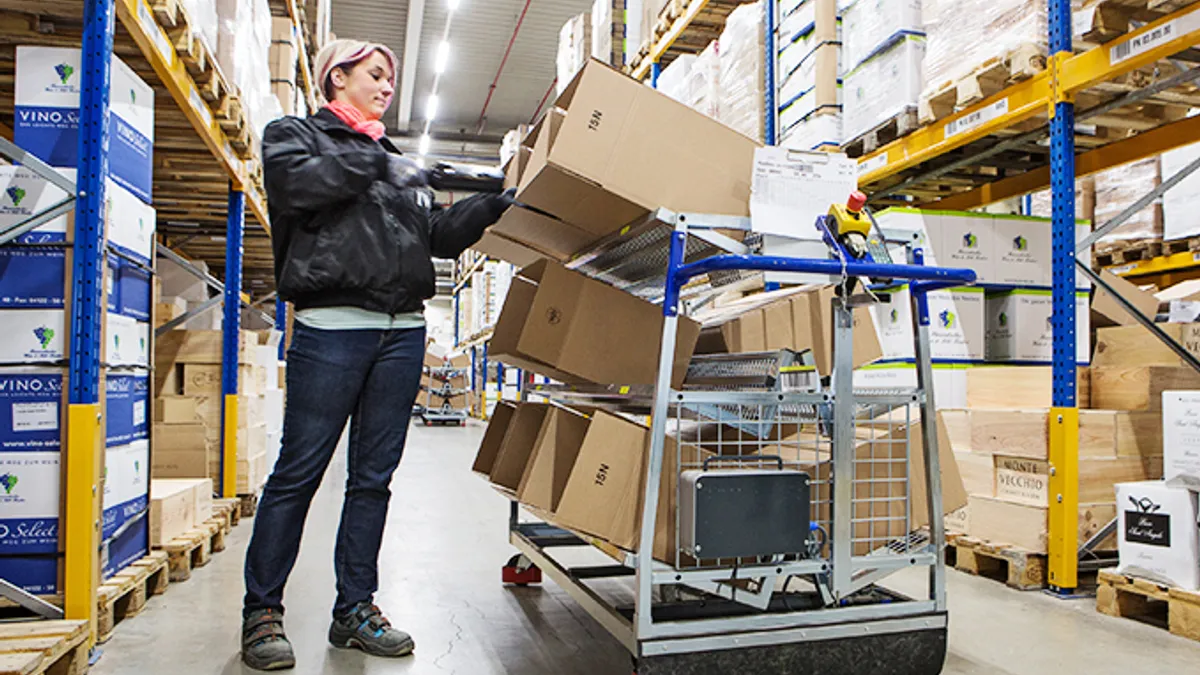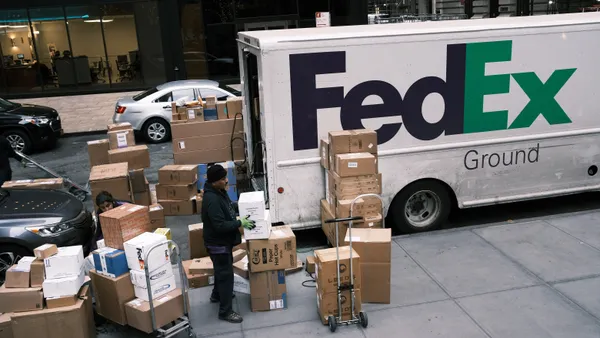Dive Brief:
- The Consumer Brands Association launched a Contactless Delivery Task Force on Monday made up of 23 consumer packaged goods companies to study the impact of, and develop uniform standards for, implementing contactless deliveries at scale throughout their supply chains.
- The group's initial focus will be on electronic bills of lading (eBOL). There are benefits to digitizing this paper-based process from an efficiency standpoint (thereby improving visibility and data accuracy) and a health and safety one as well, reducing the need for physical contact between warehouse workers, according to a CBA press release.
- "As shippers continue to build more efficient and resilient supply chains, the eBOL fills in a gap that many clients have been asking for. The touchless BOL will result in entry error reduction, increased visibility to OS&Ds, drive lower transportation costs and benefit their green footprint," Henry Blum, a senior manager in Accenture's supply chain and operations practice, said in a statement.
Dive Insight:
EBOLs represent another step forward into the digital age for the freight industry, across modes. Moving away from paper in favor of online dashboards, data analytics, booking and instant quotes is becoming more prevalent as shippers voice need for real-time information to optimize complex global operations. CMA CGM made the switch to eBOL last year, and carriers in the trucking industry have been adopting the technology as well.
However, now that more supply chain personnel are working remotely due to the pandemic, the need for information to be available quickly and electronically has increased. Making the switch to eBOL presents an opportunity to give shippers better insight into warehouse operations and logistics in real time and without being on site. And for those whose jobs can't be done remotely, such as warehouse workers and truck drivers, an eBOL can make social distancing easier by cutting out the need to transfer paper documents from person to person.
"As CPG companies identify ways to increase supply chain efficiencies and ensure employee safety, electronic delivery verification through a contactless pick-up and delivery process is a natural solution," Tom Madrecki, Consumer Brands Association VP of supply chain and logistics, said in a statement.
Accenture, Coyote Logistics and Vector, a transportation digitization solutions provider, will also be working alongside CBA's task force to develop and ultimately scale end-to-end contactless delivery standards.
As states reopen and coronavirus infection rates begin to spike, "Wildly different state-by-state approaches have created challenges in providing essential products to consumers," CBA CEO Geoff Freeman wrote in a blog post June 8. "The drive for federal clarity may be the one constant from our January survey of CPG executives, when complying with a patchwork of state regulations was the top issue impacting their business."
Scaling up eBOL is a first step toward establishing some consistency and clarity for CPG shippers, according to the release.
"Health, safety and efficiency have always been our priorities, but now we’re forced to look for new and innovative ways of incorporating technology even further," Yone Dewberry, SVP and chief supply chain officer at Land O’Lakes, a task force member company, said in a statement. While the COVID-19 outbreak has been a major disruptor for his and many other CPG companies, he said it is also an opportunity to develop new processes to improve operations for the future.














